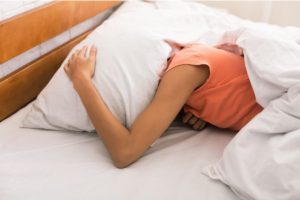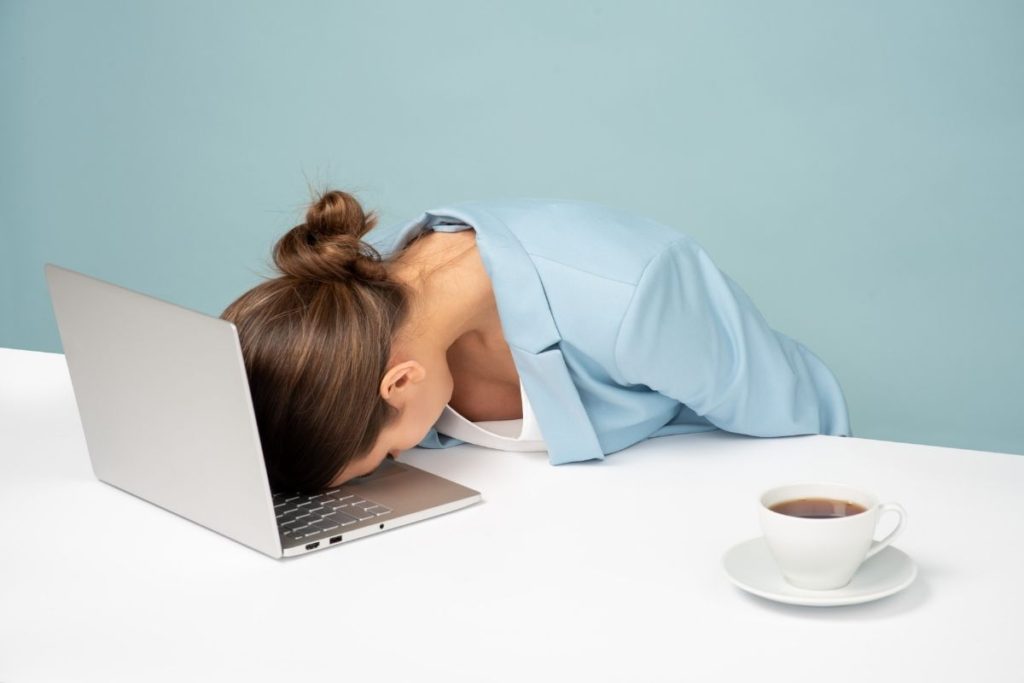Lack of sleep is a common problem that can affect anyone. It’s important to understand how it affects your body and mind, so you can make changes in your life to get better quality rest.
It’s no secret that getting a good night’s sleep is crucial for our health and well-being. Yet, millions of people around the world are not getting the amount of sleep they need. This can have a number of harmful effects on our bodies and minds. In this blog post, I’ll highlight the main causes of sleep deprivation.
Fortunately, by understanding what keeps us from getting a good night’s sleep, we can take steps to address the issue and get back on track.
So, what’s keeping you up at night? Read on to find out what are the most common culprits!
“The best bridge between despair and hope is a good night’s sleep.” — E. Joseph Cossman
- Lack of sleep is a common problem that can affect anyone. It's important to understand how it affects your body and mind, so you can make changes in your life to get better quality rest.
- What are the main causes for lack of sleep?
- 1. Occupation causes sleep deprivation
- 2. Lack of routines and structures causes sleep deprivation
- 3. Stress causes sleep deprivation
- 4. Poor sleep habits affects sleep quality
- 5. Medical conditions cause sleep deprivation
- 6. Traveling causes sleep deprivation
- 7. Age affects sleep quality
- 8. Gender affects sleep quality
- 9. Mental health challenges causes sleep deprivation
- 10. Substance abuse causes sleep deprivation
- 11. Environmental factors can cause sleep deprivation
- 12. Genetics influence sleep
- Final words on the causes of sleep deprivation
- How can I naturally improve my sleep?
- How does lack of sleep affect my health?
What are the main causes for lack of sleep?
Unfortunately, there are many factors that increase the risk of sleep deprivation including your occupation, routines (or lack thereof), stress, poor habits, medical conditions, travel, age, gender, genetics, mental health challenges, substance abuse and environmental factors.
1. Occupation causes sleep deprivation
People who work rotating shifts, night shifts and long hours are especially at risk for sleep deprivation, as their body’s natural clock is disrupted.
2. Lack of routines and structures causes sleep deprivation
People who have a lot of irregular or unstructured activities are more likely to suffer from sleep deprivation.
Often, they don’t have enough time to relax and prepare for bed.

“It is in your best interest to avoid sleep debt, otherwise be prepared to pay both the DEBT and the INTEREST!” ― Stan Jacobs
3. Stress causes sleep deprivation
Stress is a common cause of sleep deprivation.
In fact, people who are under a lot of stress often have difficulty falling or staying asleep.
4. Poor sleep habits affects sleep quality
People who engage in bad sleep habits, such as watching TV or working on the computer in bed, are more likely to suffer from sleep deprivation.
Blue light, which is emitted from electronic devices like phones and laptops, can interfere with our natural sleep rhythm.
5. Medical conditions cause sleep deprivation
People with medical conditions such as diabetes, asthma, heart disease, sleep apnea, restless leg syndrome, insomnia and narcolepsy are often at risk for sleep deprivation.
6. Traveling causes sleep deprivation
Jet lag and travel fatigue can be major contributors to lack of sleep.
7. Age affects sleep quality
Older adults often have more difficulty falling asleep and staying asleep.
This may be due to the increased likelihood of chronic disease, chronic pain and use of medications.
8. Gender affects sleep quality
Women may need more sleep than men because of the hormonal changes they experience during their menstrual cycles and pregnancies.

“Sleep deprivation is physically miserable and creatively cathartic, as internal landscapes rise up from their dormant ashes.” ― Jaeda DeWalt
9. Mental health challenges causes sleep deprivation
People who suffer from mental health issues such as anxiety and bipolar disorder are more likely to have sleeping difficulty.
10. Substance abuse causes sleep deprivation
Substance abuse such as alcohol and use of stimulants like caffeine, nicotine and amphetamines will make you more likely to suffer from sleep deprivation.
11. Environmental factors can cause sleep deprivation
Noise, light and extreme temperatures can all interfere with our ability to get a good night’s sleep.
12. Genetics influence sleep
Twin studies show that some people are simply genetically predisposed to getting less sleep than others.
Final words on the causes of sleep deprivation
Lack of sleep can be caused by many different factors, both internal and external.
What are some things that have been keeping you from getting a good night’s sleep? Let me know in the comments below.
By addressing the underlying causes of your sleeplessness, you can work to get the rest you need and improve your overall health and well-being.
Related topics
How can I naturally improve my sleep?
If you’re like most people, you probably don’t get enough sleep. And if you’re not getting enough sleep, it’s taking a toll on your health.
But what can you do to improve your sleep naturally?
In this blog post, we’ll share some tips for getting a better night’s sleep. Read on to learn more.

“Sleep is the golden chain that ties health and our bodies together.” — Thomas Dekker
How does lack of sleep affect my health?
Many people don’t realize the importance of getting a good night’s sleep. Sleep is essential to our overall health and well-being.
Unfortunately, many people today are chronically sleep deprived. This can have serious consequences on our health.
In this post, we will take a look at how lack of sleep can affect our health.
References
Hershner SD, Chervin RD. Causes and consequences of sleepiness among college students. Nat Sci Sleep. 2014 Jun 23;6:73-84.
Rushana Greenidge-Horace










Leave a Reply